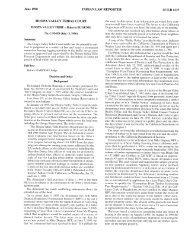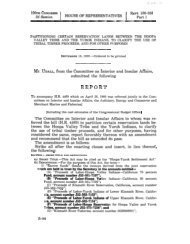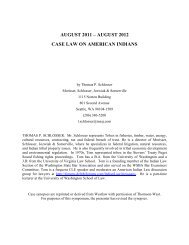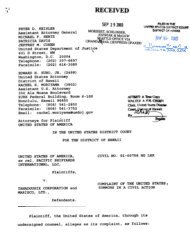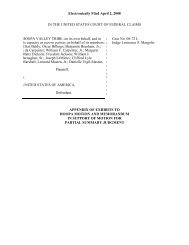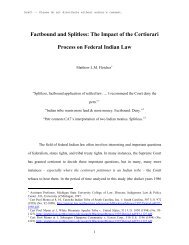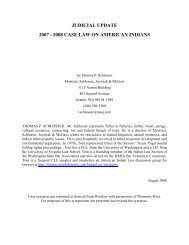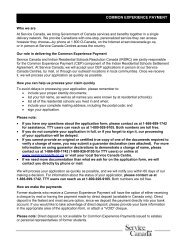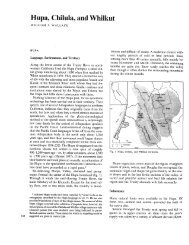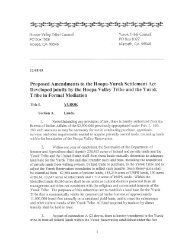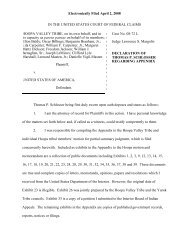Yurok Tribe's Motion to Dismiss U.S. Third Party Complaint
Yurok Tribe's Motion to Dismiss U.S. Third Party Complaint
Yurok Tribe's Motion to Dismiss U.S. Third Party Complaint
You also want an ePaper? Increase the reach of your titles
YUMPU automatically turns print PDFs into web optimized ePapers that Google loves.
Case 1:08-cv-00072-TCW Document 39 Filed 11/07/2008 Page 12 of 16<br />
in connection with release of the <strong>Yurok</strong> Fund. The Government owes the highest fiduciary<br />
duties <strong>to</strong> the <strong>Yurok</strong>, including the duty of loyalty. This apparently unprecedented complaint<br />
turns those duties on their head and should be dismissed.<br />
C. Under General Trust Law, The Government Cannot Equitably Recover The<br />
<strong>Yurok</strong> Fund<br />
While the Government remains subject <strong>to</strong> “most exacting fiduciary standards” in<br />
its relationship with Indian trust beneficiaries rather than the reasonableness standard applied<br />
under general trust law, courts sometimes look <strong>to</strong> other aspects of general trust law in<br />
adjudicating issues arising from the trust relationship between the Government and a tribe.<br />
Shoshone Indian Tribe of the Wind River Reservation v. United States, 364 F.3d 1339, 1348<br />
(Fed. Cir. 2004); Felix S. Cohen, Cohen’s Handbook of Federal Indian Law § 5.05(2) (2005)<br />
(quoting Cobell v. Nor<strong>to</strong>n, 240 F.3d 1081, 1101 (D.C. Cir. 2001)).<br />
Under general trust law, the United States has no claim against the <strong>Yurok</strong>. That is<br />
so because while a trustee can be liable for wrongful distributions <strong>to</strong> beneficiaries, the trustee<br />
may seek <strong>to</strong> recover those distributions from other beneficiaries only in limited circumstances.<br />
As a matter of equity, the trustee is barred from seeking such recovery if the beneficiary “has so<br />
changed his position that it is inequitable <strong>to</strong> compel him <strong>to</strong> make repayment.” Restatement<br />
(Second) of Trusts § 254 (1959) (citations omitted); see also George Bogert, Trusts & Trustees §<br />
814 (rev. 2d ed. 1981). In other words, the trustee cannot recover a wrongful distribution from a<br />
beneficiary “where the beneficiary has changed his position in detrimental reliance on the<br />
correctness of the [distribution].” Hoffa v. Fitzsimmons, 673 F.2d 1345, 1354 & n.27 (D.C. Cir.<br />
1982). In that case, “[t]he beneficiary is entitled <strong>to</strong> retain part or all of the overpayment <strong>to</strong> the<br />
extent necessary <strong>to</strong> avoid injustice.” Id.<br />
\\\DC - 024734/000003 - 2815011 v2<br />
12



